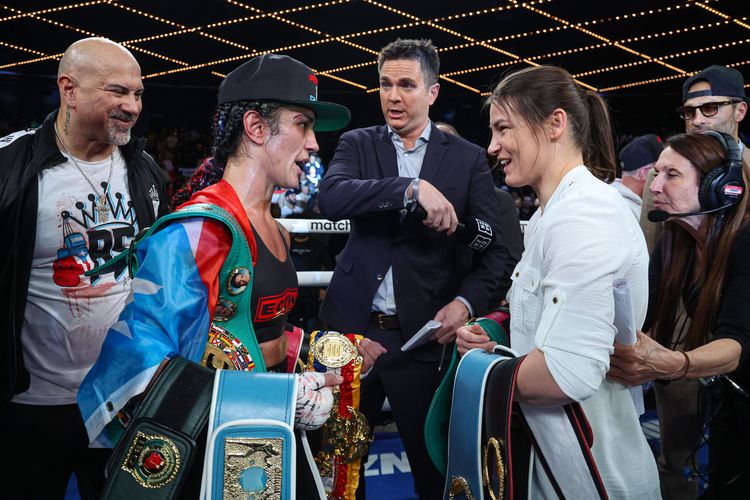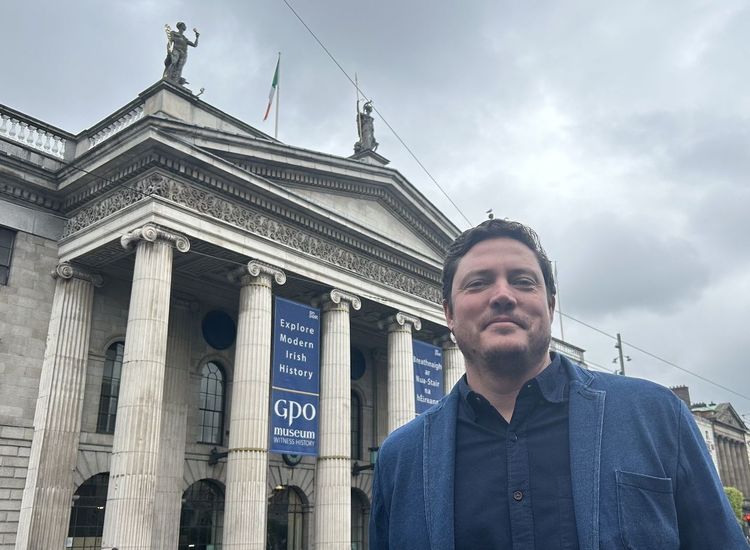Page Turner / Edited by Peter McDermott
In the second last story in Ethel Rohan’s wonderful collection, “In the Event of Contact,” three sisters sort through belongings in the old family home and fill trash bags to be taken to the city dump. Dad, dead two weeks in “Any Wonder Left,” and Mum, gone a few months, are notably pleasant to the memory. The living parents in the stories, however, tend to range from the lovingly or comically overbearing to the downright awful. This approach, where used, allows us access to the mind of the main protagonist — to his or her sense of feeling trapped in a place, for instance, or being hemmed in by expectation and custom.
Successful Manhattan hairstylist Margo returns home to Dublin in the early years of the 21st century for the wedding of a close friend in “Rare, But Not Impossible.” An only child, she must contend with Mam and Dad’s view that “our family line will die out if you and Kevin don’t get a move on.” She makes a quick visit to his family on the farm in Limerick where her brother-in-law’s wife is due to give birth in a few weeks; in a tone “part jovial, part scolding,” mother-in-law Josephine says, “You and Kevin better hurry up and get in the family way, too. I’m not going to live forever.”
In “Into the West,” Fintan hosts in San Francisco for two weeks Mother, who’s not quite on board with the idea of a wife who’s not one of our own, being from Indianapolis. The Irishwoman has no inkling about one piece of information that might make her more sympathetic to her daughter-in-law.
The title of “At the Side of the Road” refers to where Cissie Murray sells Wexford potatoes and strawberries, repels unsavory advances and considers her options in life, romantic and otherwise. Her parents insist she take up a college offer: “They let you in, didn’t they?” Cissie sees it as another “cage.”
“In the Event of Contact,” which is just out, Rohan said, “is a contemporary short story collection containing 14 stories, most of which are set in Ireland, and in particular my home county of Dublin. Given the book’s title, and that it’s publishing in the midst of the pandemic, there’s a presumption that the collection is about Covid-19, but the stories were written before 2020.
“Although the book does coincidentally center on similar struggles around isolation, loneliness, the need for connection, and on making and keeping contact with others on our own terms. Many of the characters in these stories suffer injury in one form or another and we follow their efforts—sometimes inspired, often flawed—to recover and regain their sense of wonder.”
The American online magazine Bustle said “‘In the Event of Contact’ is one of 2021’s must-read collections.”
The author says in her acknowledgements that she is an “ardent fan of the authors who provided praise for this book” and “thrilled each took the time and care” to read it.
One of them, Caroline Leavitt, wrote, "Rohan’s stories are small electric shocks of discovery. Here, in a perfect dozen, she writes about how love and wonder can coexist right alongside betrayal, danger, rage. How can such a collection be both unsettling and redemptive? How can any of us tease out light in our darkness? Rohan’s alchemy points the way."
Author of the novel “California” Edan Lepucki said, “‘In The Event of Contact’ is a remarkable collection of understated yet powerful stories about people who trespass, and are trespassed against. Rohan writes with such sensitivity and compassion, and long after I was done reading, I kept thinking about her characters and how uniquely she gave witness to their complicated lives and private pain.”

Ethel Rohan
Place of birth: Dublin
Spouse: One.
Children: Two.
Residence: San Francisco
Published works: Four books (“In the Event of Contact,” “The Weight of Him,” “Goodnight Nobody,” and “Cut Through the Bone”). Two chapbooks (“Out of Dublin” and “Hard to Say”).
What is your writing routine? Are there ideal conditions?
I like to begin writing in the early morning, either by hand or typing on my laptop. Ideal conditions are my sitting at my writing desk as soon as possible after awakening, when my subconscious is still fresh from sleep (sleep: that often elusive, slippery state). I can drop into that trance-like storytelling state much faster that way—a sense of near-hypnosis when the imagination is ripe and the conjuring can flow.
What advice do you have for aspiring writers?
I wish I could offer original and more practical and heartening kernels, but there’s nothing new about what’s needed. My best advice is: Practice, Persevere, Read, Persevere, Network, and Persevere.
Name three books that are memorable in terms of your reading pleasure.
As a teen, James Herriott’s “All Creatures Great and Small.” That delightful novel, and several more of his, carried me into the English countryside and the lives of wonderful characters (both human and animal). I remember laughing a lot, my throat filling at times, and overall a warm feeling of escapism.
Erin Morgenstern’s “The Night Circus” is another novel I lost myself inside, delighting in its stellar, highly-imaginative storytelling.
“My Sister, the Serial Killer” by Oyinkan Braithwaite might seem an odd choice to add to this list but it was a surprising, original, and, yes, pleasurable read.
What book are you currently reading?
I just finished Irish writer Louise Kennedy’s fierce and brilliant short story collection, “The End of the World is a Cul de Sac.” And have started reading Michelle Zauner’s memoir “Crying in the H Mart,” which so far is living up to the vigorous hype. In prose and emotion and intelligence, it’s a stunner.
Is there a book you wish you had written?
The Bible.
Name a book that you were pleasantly surprised by
“The Part That Burns” by Jeannnine Ouellette (Split/Lip Press, 2021) This debut memoir from an indie press introduced me to the author and her brilliant writing and personal resilience. From a brutal childhood, she wrought a life and a book that are defiant, graceful, and a thing of beauty. The Part That Burns is a master class in memoir, and in living. I loved it.
If you could meet one author, living or dead, who would it be?
Emily Brontë. I’d love to bask in her greatness, partly in the hope it’s contagious, and to hear firsthand about her life, writings, Catherine Earnshaw, and Heathcliff. I’d argue that Catherine was abused and Heathcliff was far from a hero, and listen rapt to Emily’s responses. Then we’d wonder about ghosts and God, and eat and drink and write together.
What book changed your life?
Emily Brontë’s “Wuthering Heights.” It was the first book I read that showed me what was possible out of a woman’s life that was marked by wounds and oppression, and from an imagination and passion that seemed limitless.
What is your favorite spot in Ireland?
I can’t limit myself to a lone spot, sorry. But I’ll contain myself to three: Walking the woodland trails through Glendalough National Park, Co. Wicklow, is a religious experience. Staying with Wicklow, the waterfall in Powerscourt Gardens, Enniskerry, is tied to happy childhood memories. I love to return to it, and in particular the noise and power of its rushing drop from ancient stone. The history, architecture, and landscape of Kylemore Abbey [in County Galway] are stunning.
You're Irish if...
you can pronounce “Graiguenamanagh,” Co. Kilkenny.










